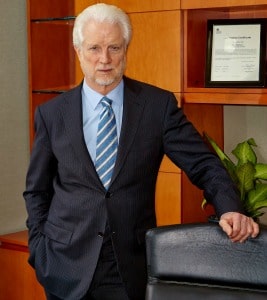
The reasons given in Salem’s comments to The FCC have mostly to do with AM Radio and Salem CEO Ed Atsinger says current ownership limits do not jeopardize radio’s future. 70% of Salem’s stations are on the AM band. Atsinger believes further relaxation on the FM dial will put the final dagger in AM radio with more major radio brands – and their audiences – migrating over to FM.
Salem’s comments to The FCC state that current limits do not jeopardize broadcast radio’s future. “On the other hand, without the current restraint on the number of stations a local owner may hold in the same service, it is possible that in a few short years an entire sub industry within broadcasting—religious radio—which now thrives on the AM Band, will either be consolidated into groups which have no inclination for religious programming, and/or will become inaccessible to small market America.
Salem believes that with additional deregulation it’s possible there could be a one-owner broadcast scenario in town, in which the owner during low revenue dayparts may have automated all of its the stations.
Salem says weakening of the AM Band will likely hurt religious broadcasters, along with minority broadcasters and independent small market broadcasters who provide meaningful, diverse programming options to their communities. “These local broadcasters have built businesses on the AM Band under current regulations and the Commission should be cautious about taking any action that would, even inadvertently, cause their enterprises to decline in value—it is the listeners who ultimately would suffer.”






When I was a kid “talkin’ dirty an’ playin’ the Hit’s” at C-JOY in Guelph, Ontario, we also had a “Beautiful Music” FM’er in a closet down the hall.
It was programmed using metal chips of about 2″x2″ that were gravity-fed into the machine, and which cued a half dozen 10-inch reel-to-reel machines – on a mostly, semi, sometimes regular basis.
This was in 1964!
While none of us thought we were observing a form of the future for radio, we were also unconcerned.
After all and even then, with a minimal overhead, they still couldn’t make a dollar.
I whole heartedly agree with Salem’s CEO Ed Atsinger, but with additional reasons. I have spent my life in broadcasting finally retiring as Regional Engineering Manager for Susquehanna Radio Corp.
As a teen I was enthralled with radio. It was exciting, part of everyday life for most of my peers. Going to remotes and the stations and with mentoring by Roger Christian who was in the Air Force and worked part time at KFXM. The rush he got, being in radio, spread like a disease to me. But teens no longer go to remotes to see the equipment and more importantly, the personalities. It was live and filled with life.
Currently, we have cookie-cutter programming, mostly from automation in most markets. It no longer gives time, temp, information about what’s going on in town and news. With the glimmer gone, thanks to consolidation in many markets, there is no personality to the stations.
Simply put; fewer owners leads to more dead radio, (automated) stations running the same programming found at the owner’s dominated markets. It also fosters less community service. PSA’s and the like are gone on what are music only stations.
If this is published, I’ll be back on the topic of engineering.
Max Turner
Former Susquehanna Radio
Max, it’s been my experience that if an owner has the option to use automation, he’ll use it regardless of how many stations he owns. That was the case in the 60s and 70s when there where hundreds of automated stations running taped programming. You can’t put the toothpaste back in the tube. Blaming automation on deregulation ignores that stations were running this way before they had computers. Right now, I know of single station owners that are nothing more than automated jukeboxes. It’s all they can afford. Keeping ownership laws where they are, or even bringing back old ownership rules from 30 years ago won’t change the economics of radio. If you want more community service, you have to require it by law, otherwise it won’t happen, no matter how many owners there are. That’s just the reality of the situation.
Max – The reason is that way is sloppy programming. It is COMPLETELY possible to automate correct time, temperature and sound local and virtually live in a tracked environment. Here’s the problem: it takes forever to set up. Your jocks must record EVERY available minute, every remotely potential temperature, and then put it all in the computer. Then, you have to set up proper breaknotes in your music scheduler which then tells the computer to go look for the correct time and temperature (from the computer clock and a weather app) and load the tracks into their proper positions in the clock. When done correctly, it sounds seamless and live. But, how many program directors (who are now programming 2 to 8 stations) have the time to do all that?